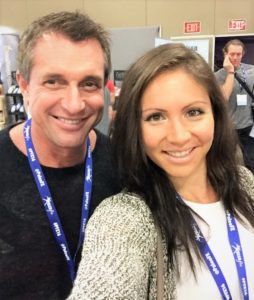The most underrated anti-aging tool we all have at our disposal is our sleep. At the Paleof(x) Conference in May, I attended a lecture by Dr. Kirk Parsley, a former Navy Seal who ended up working with the doctors of the Seals to help optimize their health. His research highlights how sleep deprivation leads to the most common signs of aging. Ultimately, the better we sleep, the younger we will look and feel.
The Brain and Sleep
The first important thing to know about our sleep is that it is broken into two phases: the first half is slow-wave, deep delta/theta brain wave sleep. The second half is light, rapid eye movement (REM) sleep, which causes us to be paralyzed, experience vivid dreams, and brain improvement via neurotransmitter balance. Neurotransmitter function in the frontal cortex of the brain is highly involved with problem-solving skills and laying down our long-term memories.

Body Composition
Thyroid glands produce hormones, which are crucial for maintaining body composition in many ways. Testosterone, thyroid and growth hormones, and brown fat cell production are all regulated during REM sleep. Testosterone is an anabolic, muscle-building hormone that plays a role in sex drive. Thyroid growth hormones are responsible for regulating metabolism. Finally, brown fat adipose tissue (or BAT fat) naturally decreases as we age, and is produced during sleep. BAT fat generates heat by causing us to shiver in order to regulate the temperature of our internal organs. To do this, BAT fat metabolizes our white fat cells. This is why having more BAT fat keeps us lean.
Skin Elasticity
Collagen production is involved with our skin elasticity along with elastin and keratinocytes and subcutaneous fat that keeps our skin smooth and wrinkle-free. Dr. Parsley showed us a picture of a woman’s face before and after just one night of sleep deprivation, and her face looked visibly sunken in particularly around the eyes. The subcutaneous fat pads behind, below, and above the eyes keep us looking fresh and what he dubbed “skeleton face” is the result of mild-to-severe sleep deprivation.
Dr. Parsley assures that we can undo the damage caused by sleep deprivation simply by way of paying back our sleep debt. He recommends allowing unrestricted sleep for a few days–depending on how long we have been sleep deprived–and naps are also a great way to pay down your sleep debt, so long as they are at least two hours prior to bedtime.
Clearly, getting more sleep is easier said than done. There are many factors that influence our sleep quality—stress being one of the major culprits—but there are ways to help us get more of the rest we need. Just like physical strength or learning a new skill, we can adopt habits that will improve our sleep if we put in conscious effort and give it the priority in our lives that it deserves.
To learn more about Dr. Parsley and the power of sleep, visit Dr. Parsley’s website.








